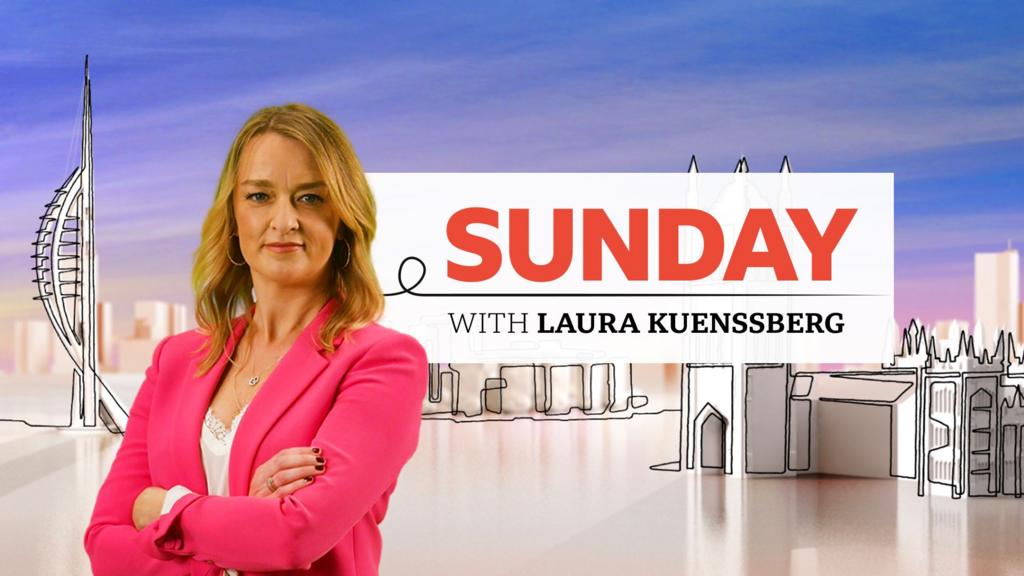David Lammy Interview with Laura Kuenssberg: Key Takeaways, Political Reactions, and What It Means for the UK
On Sunday’s flagship BBC programme, Laura Kuenssberg welcomed Deputy Prime Minister and Foreign Secretary David Lammy to the studio, alongside Liberal Democrat leader Sir Ed Davey. The conversation was expected to be robust, and it did not disappoint. With a wide-ranging interview, Kuenssberg pressed Lammy on the government’s priorities, its performance so far, and looming challenges both at home and abroad.
This article dives deep into the main themes of Lammy’s interview, the political dynamics on display, the public and media reaction, and what the exchange reveals about the current state of UK politics.
1. The Setting: Kuenssberg’s Political Stage
Since taking over as the BBC’s Sunday political anchor, Laura Kuenssberg has turned her show into a weekly arena where Britain’s leaders are tested. Unlike more combative late-night formats, Kuenssberg’s style mixes persistent questioning with a calm but unyielding tone.
For Lammy, appearing on this programme was a significant test. As Deputy Prime Minister and one of Labour’s most senior figures, he faced scrutiny not only of the government’s record but also of his own political philosophy and leadership style.
Ed Davey’s presence added another layer, as the Liberal Democrats continue to position themselves as a credible alternative voice on issues like housing, the NHS, and education.
2. Domestic Policy Pressures
2.1 The Cost of Living Crisis
One of the first issues Kuenssberg raised was the cost of living, still the most pressing concern for millions of UK households. Lammy acknowledged the hardship but insisted the government was “on track” to deliver stability, citing policies aimed at tackling inflation and supporting vulnerable families.
Critics, however, argue that the government’s response remains piecemeal. Kuenssberg pressed Lammy on whether Labour has a clear plan beyond slogans. His response focused on fairness, redistribution, and targeting help where it’s most needed. Yet, some observers felt the answers lacked concrete new announcements.
2.2 The NHS and Public Services
Another flashpoint was the state of the NHS. With waiting times still high and staffing shortages acute, Kuenssberg asked Lammy how the government would deliver quick improvements. Lammy repeated Labour’s pledge to invest in recruitment and training while streamlining bureaucracy.
This exchange highlighted a core tension: voters want fast results, but systemic problems require long-term fixes. Lammy struck a cautious tone, urging patience, but whether the public shares that patience is uncertain.
2.3 Housing and Infrastructure
Ed Davey, in his portion of the programme, sought to highlight housing as a central failure of both Labour and the Conservatives over decades. Lammy, when pressed, defended the government’s plan to boost affordable housing, though critics say delivery will be the ultimate test.
3. Foreign Policy Challenges
As Foreign Secretary, Lammy was questioned heavily on international affairs.
3.1 Relations with the United States
Kuenssberg asked about Britain’s relationship with Washington, particularly amid uncertainties in US politics. Lammy stressed the “special relationship” remains vital but acknowledged that changing administrations across the Atlantic could reshape priorities.
3.2 War in Ukraine
Ukraine featured prominently, with Lammy reiterating Britain’s commitment to supporting Kyiv “for as long as it takes.” Kuenssberg probed whether public appetite for ongoing aid might weaken. Lammy insisted it was both a moral obligation and a strategic necessity.
3.3 Middle East Tensions
On the Middle East, Lammy was more cautious, avoiding specific criticisms of allies while stressing the need for diplomacy. Observers noted his measured language, perhaps designed to avoid escalating tensions while still signaling Britain’s active engagement.
4. The Tone of the Interview
What stood out in this interview was Lammy’s balance between assertiveness and caution.
He was assertive in defending Labour’s record since coming into power.
He was cautious in offering new promises, perhaps wary of being boxed in by Kuenssberg’s persistent questioning.
For some viewers, this came across as statesmanlike. For others, it felt evasive.
Kuenssberg, for her part, remained sharp but fair, pushing Lammy repeatedly when he leaned too heavily on slogans.
5. Political Strategy Behind Lammy’s Answers
Lammy’s appearance can be seen as part of a broader Labour strategy:
Project stability – reassure voters that Labour is competent and reliable.
Avoid overpromising – leave room for flexibility while in government.
Highlight contrasts – subtly remind audiences of Conservative mismanagement without appearing overly partisan.
Ed Davey, meanwhile, used his airtime to differentiate the Liberal Democrats, focusing on community-level issues and portraying his party as more connected to local concerns.
6. Public and Media Reaction
Following the programme, reactions were mixed:
Supporters of Lammy praised his calm authority and seriousness.
Critics accused him of dodging specifics and offering “soundbites over substance.”
Media commentators noted the interview as a sign of Labour’s cautious governing style: steady but perhaps uninspiring.
On social media, viewers debated whether Lammy’s performance was “prime ministerial” or “defensively bland.”
7. Implications for Labour and British Politics
Lammy’s interview underscores the delicate position of Labour in government:
Expectations are high after years of Conservative rule.
Delivery is slow in areas like the NHS and housing.
International instability requires careful diplomacy.
The balance between bold reform and cautious governance will likely define both Lammy’s personal legacy and Labour’s success in office.
8. Looking Ahead
Lammy will almost certainly continue to feature prominently in Kuenssberg’s interviews and similar forums. For Labour, the challenge is not just managing the present but also convincing the public that progress is being made.
Ed Davey and the Liberal Democrats will keep pressing on local and practical issues, seeking to carve space as the party of everyday solutions.
As always, Kuenssberg’s programme remains one of the most important weekly tests of political credibility.
Conclusion
David Lammy’s interview with Laura Kuenssberg was a reminder of the scrutiny that comes with power. His calm tone and disciplined messaging reflected Labour’s strategy of caution, but also revealed the challenges of meeting public expectations.
Whether voters reward this steadiness or demand more radical action will shape the next chapter of British politics. For now, Lammy emerges as a disciplined communicator – but the real test lies in whether Labour can turn words into results.



